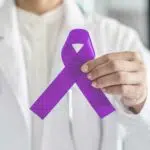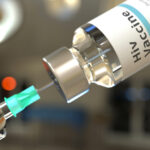Every year the world commemorates World AIDS Vaccine Day on May 18. The day is also known as H.I.V. Vaccine Knowledge Day, a campaign aimed at increasing public awareness about the importance of H.I.V. vaccinations in preventing H.I.V. infection and AIDS.
The project accomplishes two goals. One, it primarily aims to honor those medical professionals, scientists, and volunteers/supporters who have committed their lives to the development of a viable and safe AIDS vaccine. The other emphasizes the necessity of vaccination, which serves as a barrier against life-threatening infection. People are told that H.I.V. may be avoided through this fantastic initiative led by the National Institute of Allergy and Infectious Diseases (N.I.A.I.D.) and that every one of us has a critical role to play in the preventive process and must share worldwide responsibility.
History of World AIDS Vaccine Day
The inaugural World AIDS Vaccine Day was held on May 18, 1998, and was observed across the world. The idea for H.I.V. Vaccine Awareness Day came from former U.S. President Bill Clinton’s commencement speech at Morgan State University in 1997. He had stressed the importance of vaccination in containing and eradicating the deadly illness. Clinton had underlined the need of maximizing the use of science and technology to develop a vaccine that would improve people’s ability to fight H.I.V.
Since then, World AIDS Vaccine Day has been observed by numerous groups all over the world to educate people about the need of taking preventative measures, disseminate AIDS education, encourage researchers, and assure the common man’s full involvement in this noble cause.
The human immunodeficiency virus (H.I.V.) is a virus that attacks the immune system of the body. It may be contracted through sharing needles, blood, or unprotected intercourse, and it can even be passed from mother to child during pregnancy. Within a few weeks, flu-like symptoms such as fever, sore throat, and exhaustion signal the onset of the illness. The virus proceeds to the next stage, which is acquired immunodeficiency syndrome (AIDS). Although antiretroviral therapies (A.R.Ts) have been shown to slow the progression of the disease, no permanent treatment has yet been developed. As a result, the development of an H.I.V. vaccine might be used to protect people who do not have H.I.V. The activities are targeted at hastening the development of vaccines.
H.I.V. is a severe global public health concern, with an estimated 38 million people living with the virus by the end of 2019. H.I.V. infection has become a manageable chronic health condition, allowing individuals living with H.I.V. to live healthy and long lives, thanks to improved access to efficient H.I.V. prevention, diagnosis, treatment, and care.
World AIDS Vaccine Day timeline
The H.I.V.-1 virus, which is closely linked to a virus found in chimps, begins to circulate throughout Kinshasa.
For the first time, the U.S. Centers for Disease Control and Prevention (C.D.C.) issues an AIDS report.
According to WHO, an estimated 38.0 million individuals around the world are living with H.I.V.
According to the WHO, 26 million individuals are receiving antiretroviral medication, a 2.4% rise over the estimated 25.4 million at the end of 2019.
World AIDS Vaccine Day FAQs
Why do we celebrate World AIDS Vaccine Day?
It’s an opportunity to not only praise those who have worked to combat the disease, but also to remember those who have died as a result of it. While recent discoveries in AIDS vaccinations have pushed us closer to a cure, we are still a long way to go.
Which date is known as World AIDS Vaccine Day?
Every year on May 18, organizations and people throughout the globe raise awareness about H.I.V. vaccinations, work to enhance H.I.V. awareness and understanding, advocate for H.I.V. prevention, and speak out against H.I.V. stigma.
Is there a difference between H.I.V. and AIDS?
Yes. AIDS is a stage of severe infection, whereas H.I.V. is a virus. H.I.V., or human immunodeficiency virus, is an infectious virus that weakens a person’s immune system over time, making them less able to protect themselves against viruses, bacteria, fungi, and parasites. These infections, which are referred to as “opportunistic,” are usually mild in the beginning but can worsen as the immune system is exhausted.
How to Observe World AIDS Vaccine Day
Donate
A slew of national and international N.G.Os are dedicated to combating the disease and the challenges that come with it. Check online to see whether you'd want to assist an organization in the United States, where death rates have been dropping, infections continue to impact thousands of individuals each year.
Share it on social media
Use the hashtag #WorldAIDSVaccineDay to announce this national awareness day on your social media platforms. The more people who are aware of the need of finding an AIDS cure, the sooner we will be able to discover one.
Educate communities
It's critical to keep educating communities about H.I.V. and AIDS prevention. It is critical to educate underserved areas and minority groups on H.I.V. prevention.
5 Facts About The AIDS Vaccine
More vulnerable
The Human Immunodeficiency Virus, also known as H.I.V., affects the cells that assist the body fight infection and increases a person's risk of contracting other illnesses.
Spread by contact
It is transferred by intimate contact with a person who has H.I.V. and their bodily fluids.
Develop a vaccine
Currently, no vaccine can prevent H.I.V. infection or treat individuals who already have it, but scientists are, nevertheless, working on an AIDS vaccine.
Children are at risk too
By the end of 2011, there were 3.3 million H.I.V.-positive youngsters around the globe.
Many people are unaware they have it
According to the C.D.C., one out of every five persons in the United States is infected with the virus.
Why World AIDS Vaccine Day is Important
It’s an opportunity to recognize health professionals
This day honors the numerous volunteers, community people, health professionals, and scientists who are working together to develop an H.I.V. vaccine that is both safe and effective. It's also a day to raise awareness about the necessity of H.I.V. vaccine research in communities.
Treatment accessibility
International AIDS funding began to decline for the first time, while less than half of persons living with H.I.V./AIDS on the globe had access to antiretroviral medication. It's never been more critical to bring attention to treatment disparities to put an end to the disease's spread once and for all.
It’s cost-effective
In comparison to the cost of lifetime therapy, in this case, antiretroviral therapy, an H.I.V. vaccine, is a one-time intervention that is incredibly cost-effective. It is important to further studies about this important cause.
World AIDS Vaccine Day dates
| Year | Date | Day |
|---|---|---|
| 2026 | May 18 | Monday |
| 2027 | May 18 | Tuesday |
| 2028 | May 18 | Thursday |
| 2029 | May 18 | Friday |
| 2030 | May 18 | Saturday |






















